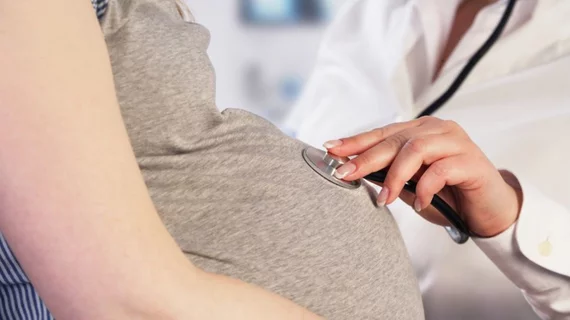Combining artificial intelligence with a 30 second MRI scan can predict the health of a pregnant patients’ placenta and identify potential complications.
King’s College London researchers unveiled their tool, used to fully automate manual segmentation of placenta images, in the August issue of Medical Image Analysis. The platform performed well when paired with MRI information, detecting fetal abnormalities and preeclampsia.
“The proposed machine learning pipeline runs … close to real-time and, deployed in clinical settings, has the potential to become a cornerstone of diagnosis and intervention of placental insufficiency,” Jana Hutter, PhD, with the Center for the Developing Brain at King’s College, and colleagues wrote.
Hutter et al. trained and evaluated their tool using 108 3T MRI placental datasets, which included 20 high-risk pregnancies diagnosed with pre-eclampsia and/or fetal growth restriction. An additional independent group of patients was scanned to determine if the software was generalizable.
Overall, the pipeline performed best early in the second half of pregnancies (22-33 weeks)—when preeclampsia typically sets in, the authors noted.
Under normal circumstances, radiologists can spend an hour or more segmenting placenta scans. In addition to saving substantial time, this method also keeps physicians in the loop and avoids issues related to the black box problem, according to Hutter and co-authors.
Paired with the fact that up to 7% of pregnancies are affected by pre-eclampsia, this pipeline can be easily incorporated into any fetal MRI exam to obtain previously unavailable information to better treat mothers and their children.
“This is a very exciting step forward towards using the novel MRI techniques in clinical practice—enabled by the interdisciplinary setup here at St. Thomas' Hospital and the close collaboration between obstetricians, physicists, radiologists, midwives, engineers and pathologists,” Hutter added.

